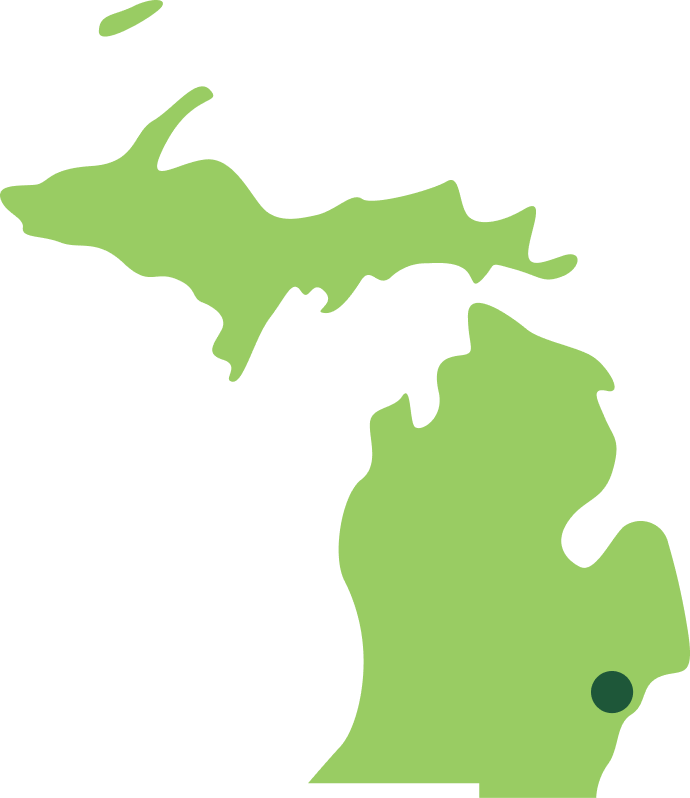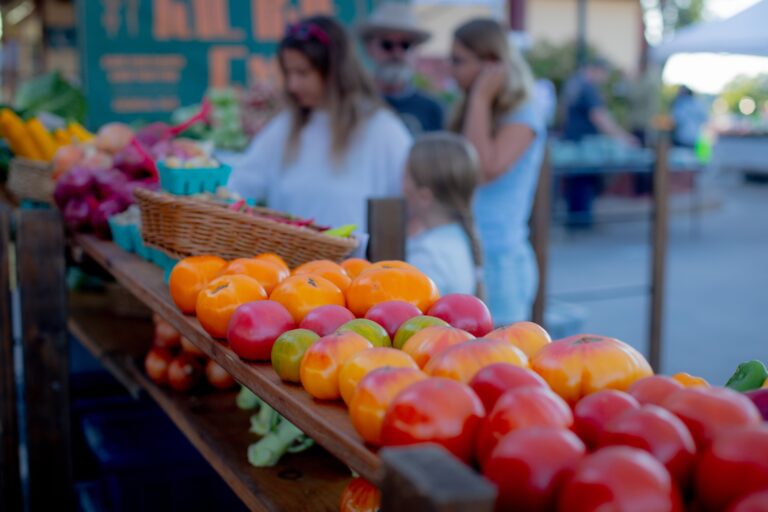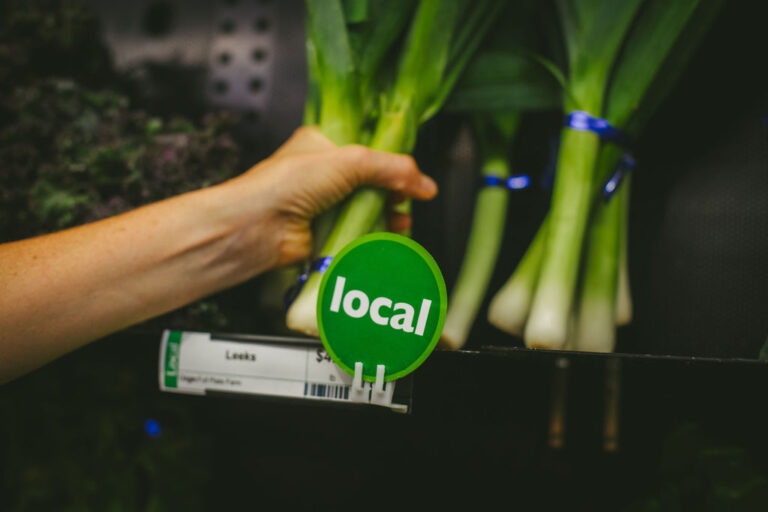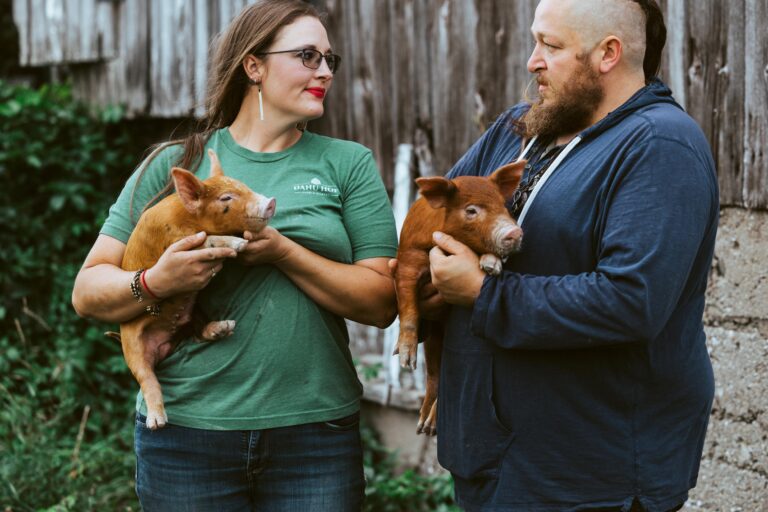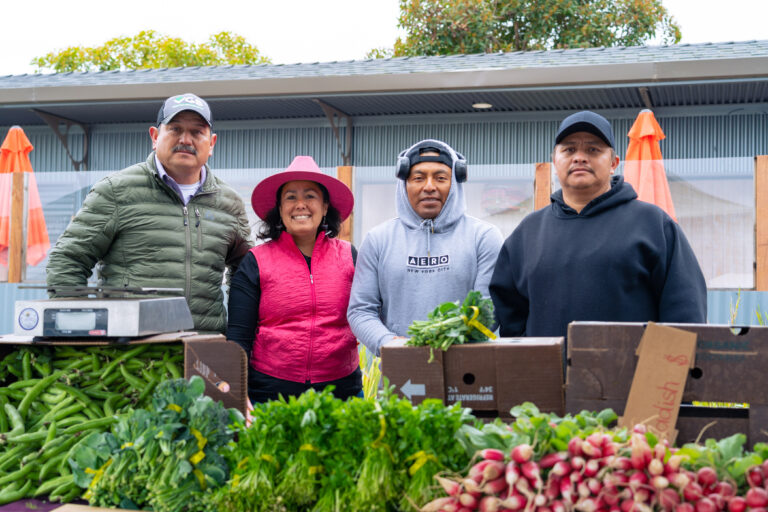2024
Fair Food Network
IMPACT REPORT
A letter from our CEO
Fair Food Network believes food has the power to change the future. The work we do every day as a national nonprofit and investor strengthens the food system by putting food at the heart of local economies. By investing in food and farming in ways that keep resources flowing locally, we can help communities build health, wealth, and the resilience needed to confront the future — and all its uncertainties – with dignity and hope.
Despite the challenges our communities face, we continue to see what’s possible when we come together to create solutions that help everyone win. Food is a powerful tool — not only for immediate impact but also for long-term systems change that keeps communities strong, from the ground up.
Healthy people, thriving economies, and resilient local food and agriculture are the foundation of our impact and vision for the future.
Over the past year, we have made significant strides in advancing these priorities, reaching families, farmers, and food businesses from coast to coast. We continue expanding our Double Up Food Bucks program, bringing healthy food to more people in more places in our home state of Michigan. To promote community-owned grocery stores, we’ve paired impact investing and innovative retail models to bring fresh food options where they are needed most — all while supporting local growers. At the national level, we advocated for and provided technical assistance to programs across the US that are helping to increase food security while driving local economic growth.
These are just some of the investments that Fair Food Network made in our food system in 2024, creating real opportunities for communities to connect and thrive — whether in rural America, suburban neighborhoods, or urban centers. We invite you to read on and explore the impact of our work and the positive ripple effects reaching communities across the country.
Thank you for being part of this journey. Together, we are proving that food is a force for good.
EXPLORE OUR HIGHLIGHTS
Our Impact by the Numbers
Total hours of technical assistance provided to food businesses and organizations in 2024
Total dollars invested into communities by Fair Food Network
We know that farmers and local food businesses are engines for positive change, so we support and invest in their success. Our work focuses on shifting how essential resources flow through the food economy, building equity in communities across the country.
By the Numbers: Fruit and Vegetable Incentives Nationwide
Organizations supported through our Nutrition Incentive Hub technical assistance and innovation work.
Gus Schumacher Nutrition Incentive Program grantees in 2024—up from just 23 in 2019 when the Nutrition Incentive Hub was launched to strengthen these programs, expand their reach, and maximize their impact.

By The Numbers: Double Up Michigan
15 YEARS OF IMPACT
Total produce bought through Double Up & SNAP benefits
Estimated pounds of produce bought with Double Up & SNAP benefits
USDA awards Fair Food Network has received to expand Double Up in Michigan and support its replication across the country since 2015
2024 IMPACT NUMBERS
Total produce bought through Double Up & SNAP benefits
Double Up sites, including 115 grocery stores and 122 farmers markets
Estimated SNAP households reached
of Michigan's population lives in a county with a Double Up site
Estimated Michigan farmers benefited
Amount of produce purchased by independent grocers
Fair Food Fund Financial Overview
Financing Committed
(through Dec. 31, 2024)
Financing Outstanding
Investment Income
Total Investments (Since Inception)
Loss Rate (as of Dec. 31, 2024): The annualized loss rate since the Fund’s inception (2012) is .73%, or 9.2% cumulatively. This includes all realized write-offs on an investment capital pool of $8.4 million.
Type of Business
Type of Structure
Fair Food Network
Consolidated Financials
Balance Sheet
Assets
Cash
$2,908,315
Accounts & Grants Receivable
$5,370,679
Investments
$10,337,093
Other Assets
$54,753
Total Assets
$18,670,840
Liabilities and Net Assets Expenses
Accounts Payable
$910,017
Loans Payable
$3,958,682
Unrestricted net Assets
$6,864,804
Temporarily Restricted Net Assets
$6,947,337
Total Liabilities and Net Assets
$18,680,840
Income Statement
Income
Government Grant Income
$9,701,606
Non-Government Grant Income
$3,348,750
Investment Income
$788,376
Other Income
$287,264
Total Income
$14,125,996
Expenses
Program Operating Expenses
$5,704,854
Technical Assistance Expenses
$350,348
Grants to Others
$7,304,990
Investment Expenses
$184,602
Other Expense
$540,674
Total Expenses
$14,085,468
Net Income
$40,528
$500,000 and above
Clif Family Foundation
Marguerite Casey Foundation
Michigan Department of Agriculture & Rural Development (MDARD)
Ralph C. Wilson, Jr. Foundation
Reinvestment Fund - Healthy Food Finance Initiative
United States Department of Agriculture (USDA)
W.K. Kellogg Foundation
You Have Our Trust Fund of New Hampshire Charitable Foundation
$250,000 to $499,999
Charles Stewart Mott Foundation
Max M. & Marjorie S. Fisher Foundation
New York State Health Foundation
$100,000 to $249,999
Anonymous
Community Foundation for Southeast Michigan-New Economy Initiative
Ford Philanthropy
Michigan Health Endowment Fund
Oakland County Health & Human Services
Surdna Foundation
Swift Foundation
The Indigo Revocable Trust
$25,000 to $99,999
Community Foundation of Greater Flint
Dalio Philanthropies
Mighty Arrow Family Foundation
Oppenheim Family Charitable Fund
Ruth Mott Foundation Donor Advised Fund of the Community Foundation of Greater Flint
United Way for Southeastern Michigan
Up to $24,999
Americana Foundation
Anonymous
Domino’s Pizza
Food and Nutrition Resources Foundation
India Foundation
Windward Fund
Thank you to our Donor Advised & Investment Fund Platform Partners
CapShift
Chordata
Natural Investments, LLC
INDIVIDUAL DONORS
$5,000 and above
Anonymous
Robert Dannin and Jolie Stahl
David Fukuzawa and Toni Kovach
Hamp Family Fund
Christopher F. Hamp and Dr. Nicole P. Hamp
Oran Hesterman and Lucinda Kurtz
Diana and Christopher Walsh
$1000 to $4999
Gary and Mimi Appel
Carl Davis
Kenneth Fisher
Paul and Judy Freedman
Randy and Patty Horton
Kate Krauss
Gary McRay
Jay Rosen
John Stewart and Ramon Torres
Dan and Bonnie Warmels
Brian Weisman and Kimberly Burton
Peter Welles
$500 to $999
Anonymous
Dean Cady
Eliza Cohen
Naomi Harrison
Mark Haubert
Greg and Barbara Houghtaling
William MacLeod
Peter and Deb Nathan
W. DeWayne Wells
Matt and Sarah Wixson
$100 to $499
Anonymous
Mr. and Mrs. Baisden
Kellie Boyd
Michael Clark
Brenda David
Timothy Donovan
Eugene and Elaine Driker
James Ellis
Todd and Judith Endelman
Cassandra Fletcher-Martin
Kat Forsythe
Noah Fulmer
Tony and Judy Grego
David and Gretchen Gruner
James Ella James
Brian Jones
Janet Katz
Thomas Messengale
Andi Nank
Gerald Oade
Kwaku Osei
Phillip and Sally Parker
Lauren Ratz
Bonnie Reece
Victoria Rose
Alessandro Sacilotto
Lisa Sebesta
Madeline Smith
Sarah Spratt
Tyler Vens
Micah Warschausky
Up to $99
Rosanna B.
Madeleine Bazinski
Timothy Bogar
Elizabeth Bondi-Kelly
Allison Buck
Neikelyn Burgos
Lanzhao Cheng
Barbara Clawson
Elizabeth Cohen
Steven Coron
Mary Jo Eyster
GJ Frye
Deborah Gale
Randy and Andrea Gerber
Emerson Green
Laura Grego
Jamie Hein
Joyce M. Holliman
Grace Jasina
Sara Johnson
Laura Kail
Miles Keller
Brian Kim
Alistair Kiyingi
Kelsie McVayre
Kayla Moran
Dara Moses
Joel Moyer
Lauren Owens
Jayelin Parker
Raghavsrinivas Ramkumar
Kelly Regan
Theresa Rian
Timothy Richards
Michael Rizzo
Alon Samuel
Alice San
Mike Sarowski
Justin Schaaf
Elaine Semanik
Krysta Stone
Michelle Stone
Grace Su
Tiffany Taylor
Karen Uffelman
Katy White
Dylan Wood
Caleb Yacks
Megan Yarrington
Suzanne Zelnik Geldys
Stay In Touch
Thank you to contributors to this report: writer Adam Robson; designers at Loop: Design for Social Good and EmSi Branding Design. Photography is courtesy of Fair Food Network and/or subjects.
Dig into past impact reports from Fair Food Network, featuring stories from the field:

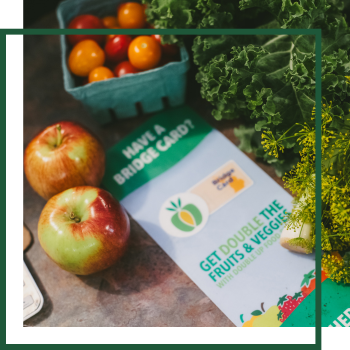 Double Up Food Bucks
Double Up Food Bucks Fair Food Network’s own Double Up Michigan team aims to help families bring home healthy fruits and vegetables while supporting Michigan farmers, in this case by working with grocers and food distribution networks to create more connections between what’s being grown locally and what’s available on store shelves. “Independent stores want to offer more fresh, local options, but they often don’t have the infrastructure, sourcing connections, or volume needed to access Michigan-grown produce consistently,” says Charles Walker, retail specialist. “They need support to bridge that gap—so they can be part of the solution in bringing healthy food closer to home.” Double Up Michigan aims to ensure the nearly 30 food retail locations in the city buy 20% or more locally grown produce during peak growing season in Michigan as a key requirement of being a part of the program. This helps build the market for Michigan farmers by driving demand for locally grown fruits and vegetables as part of the program model. Double Up Food Bucks in Michigan not only helps people using SNAP benefits but also supports farmer viability and keeps dollars circulating in local economies.
Fair Food Network’s own Double Up Michigan team aims to help families bring home healthy fruits and vegetables while supporting Michigan farmers, in this case by working with grocers and food distribution networks to create more connections between what’s being grown locally and what’s available on store shelves. “Independent stores want to offer more fresh, local options, but they often don’t have the infrastructure, sourcing connections, or volume needed to access Michigan-grown produce consistently,” says Charles Walker, retail specialist. “They need support to bridge that gap—so they can be part of the solution in bringing healthy food closer to home.” Double Up Michigan aims to ensure the nearly 30 food retail locations in the city buy 20% or more locally grown produce during peak growing season in Michigan as a key requirement of being a part of the program. This helps build the market for Michigan farmers by driving demand for locally grown fruits and vegetables as part of the program model. Double Up Food Bucks in Michigan not only helps people using SNAP benefits but also supports farmer viability and keeps dollars circulating in local economies.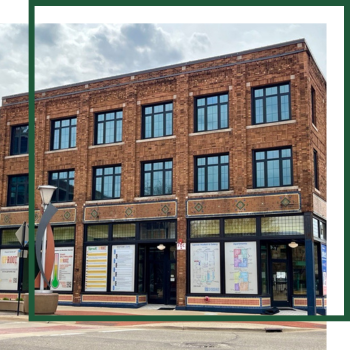 This
This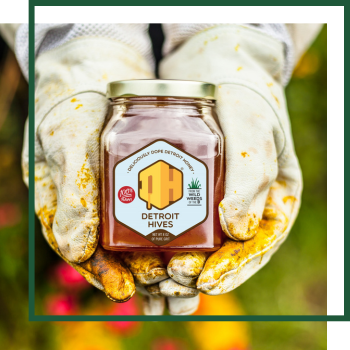 While Danu Hof Family Farm is expanding its operations to meet growing demand, other awardees, such as
While Danu Hof Family Farm is expanding its operations to meet growing demand, other awardees, such as 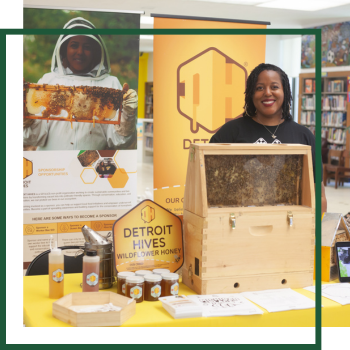 to improve underserved communities for both people and pollinators by transforming blighted vacant lots into
to improve underserved communities for both people and pollinators by transforming blighted vacant lots into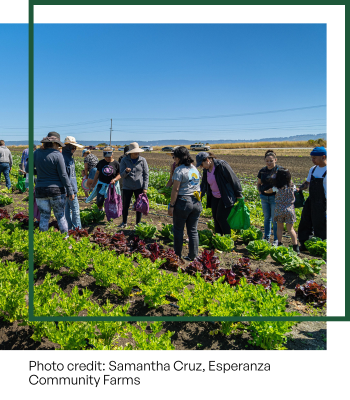 The Hub’s capacity building awards are one way that Fair Food Network is supporting partners who are scaling innovations that contend with nutrition insecurity. As program partners demonstrate the value of these innovations, they are shared with others in the field. “One of the reasons we started the program during the pandemic is because so many federally funded programs were experiencing the same challenges like how to pay for PPE or pivot operations to meet COVID protocols,” says Fair Food Network’s Senior Director of Nutrition Incentives, Erica Christensen Raml. “Since then, the focus of the fund has evolved to continue meeting the changing times. We have found that certain barriers to program usage — like transportation issues or language access — are common program-wide.”
The Hub’s capacity building awards are one way that Fair Food Network is supporting partners who are scaling innovations that contend with nutrition insecurity. As program partners demonstrate the value of these innovations, they are shared with others in the field. “One of the reasons we started the program during the pandemic is because so many federally funded programs were experiencing the same challenges like how to pay for PPE or pivot operations to meet COVID protocols,” says Fair Food Network’s Senior Director of Nutrition Incentives, Erica Christensen Raml. “Since then, the focus of the fund has evolved to continue meeting the changing times. We have found that certain barriers to program usage — like transportation issues or language access — are common program-wide.”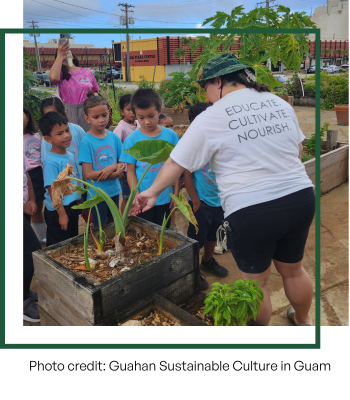 Together with our partners, Fair Food Network is supporting growing demand and helping nascent programs -— from Esperanza Community Farms in Watsonville, CA, to Knowledge Quest in Memphis, to Guahan Sustainable Culture in Guam — to explore innovative methods for service delivery and build organizational capacity to apply for and implement the large federal awards that make the impacts of nutrition incentive and produce prescription projects possible. And while each community’s program has the freedom to adapt to local needs, all — whether new or already established — are finding innovative ways to provide healthy food options for families who need it most, increase sales and expand the customer base for participating businesses, and produce more income for local farmers. “Capacity building grants give us a chance to provide additional support to communities that are innovating in scalable ways and can serve as models of resilience for the nutrition incentive field,” says Raml. “And they’re also a way to fund some really great ideas.”
Together with our partners, Fair Food Network is supporting growing demand and helping nascent programs -— from Esperanza Community Farms in Watsonville, CA, to Knowledge Quest in Memphis, to Guahan Sustainable Culture in Guam — to explore innovative methods for service delivery and build organizational capacity to apply for and implement the large federal awards that make the impacts of nutrition incentive and produce prescription projects possible. And while each community’s program has the freedom to adapt to local needs, all — whether new or already established — are finding innovative ways to provide healthy food options for families who need it most, increase sales and expand the customer base for participating businesses, and produce more income for local farmers. “Capacity building grants give us a chance to provide additional support to communities that are innovating in scalable ways and can serve as models of resilience for the nutrition incentive field,” says Raml. “And they’re also a way to fund some really great ideas.”

